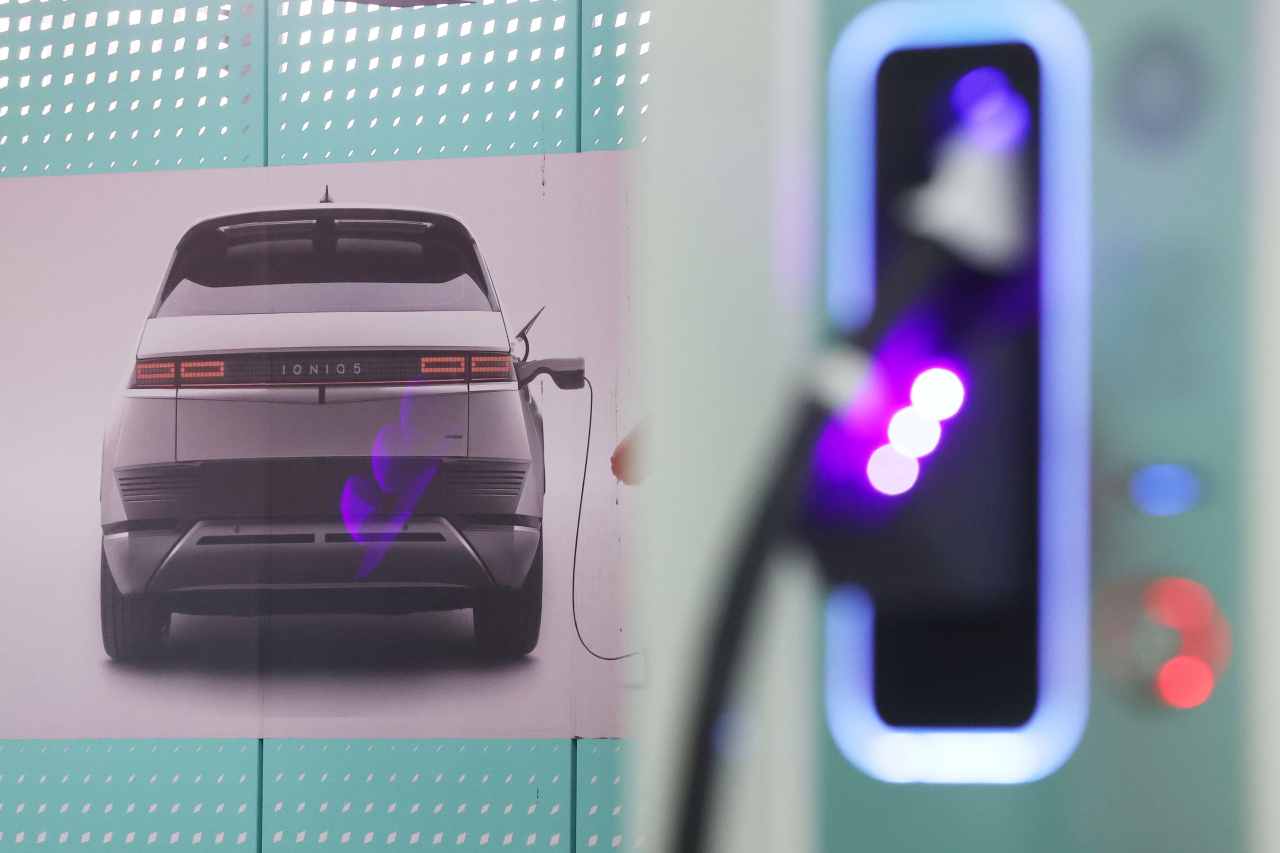[KH Explains] Tips to minimize EV range loss in cold weather
By Byun Hye-jinPublished : Dec. 21, 2022 - 09:43

Cold wave alerts prompt drivers to take greater caution to stay safe on snowy and icy roads. However, some 370,000 electric vehicle owners face an extra challenge with less driving range.
Combustion engine and hybrid cars see their fuel economy fall by 10 to 20 percent in freezing weather. But the impact is much more severe for EVs, experts say.
“At minus 10 degrees Celsius, EVs that have heater pumps show 20-25 percent drop in driving range, while those with no heater pumps can decrease in electric range as much as 30-40 percent, and more than a 60 percent drop at minus 15 degrees Celsius,” said Lee Ho-geun, an automotive engineering professor at Daeduk University.
A heater pump is a device which takes excess heat created by an EV’s battery and uses it to heat up passenger compartments and save battery power. At the same time, it can warm the battery itself, preferably at over 5 degrees Celsius.
“Using the battery-heating system can speed up charging time and reduce the burden on batteries that otherwise need to use a considerable amount of electric power when starting the car when the ambient temperature outside is low,” said Park Cheol-wan, a car engineering professor at Seojung University.
Why are EVs particularly sensitive to extreme temperatures? When the temperature falls below minus 4 degrees Celsius, it slows down the chemical reactions in lithium-ion battery cells because their electrolyte fluid becomes sluggish, dragging down the charge and discharge process.
But heat pumps are not enough to keep up your EV’s battery performance especially in a country with four distinct seasons -- when winter is “freezing cold.” So here are several tips you can follow:
First, park your EV inside or at underground parking lots. Using an indoor charging station is also helpful to facilitate the charging process.
“Keeping EVs way above zero degrees Celsius can maintain optimum battery performance. Covering cars with warm blankets parked outside is useless unlike gas-powered cars because their battery packs are usually installed at the bottom of the car inside,” said Lee.
Second, heating car seats or the steering wheel instead of using heaters is a helpful way to save the battery.
Kim Pil-soo, a professor of automotive engineering at Daelim University, said excessive use of heaters might make EVs run out of juice before reaching the destination, since they consume electricity from the batteries and convert it into heat.
Third, charge your EV battery slowly before it runs out.
In order to improve battery efficiency, it is recommended to charge it 100 percent before it goes below 20 percent during winter, said Park. “Slow charging is better because fast charging might shorten battery life.”
Fourth, using moderate acceleration and gentle regenerative braking can extend the battery range.
“Driving style seems like it would have little effect on battery usage, but it’s does. Hitting speed bumps full speed or taking corners fast could quickly consume the already vulnerable batteries,” said Kim.
Fifth, carrying a portable EV jump starter can be helpful in emergencies.
“If the car battery died, you can use a jump starter that can restart the engine. But unfortunately, it will not give sufficient amount of power to drive long distance, since it can’t transfer enough power to the larger lithium-ion battery,” said Lee.
Experts also called for a more fundamental solution that can improve the battery performance of EVs during winter.
Carmakers should come up with optimal ways to convert electricity into heat using less energy in cold weather. Otherwise, EVs can only be used for driving short distances,” said Kim.
Despite the huge cost, companies should consider making winter batteries for EVs by adding diethyl carbonate and other materials with lower freezing points to the battery electrolyte to prevent it from freezing, said an industry source on condition of anonymity.







![[KH Explains] No more 'Michael' at Kakao Games](http://res.heraldm.com/phpwas/restmb_idxmake.php?idx=644&simg=/content/image/2024/04/28/20240428050183_0.jpg&u=20240428180321)











![[Herald Interview] Mistakes turn into blessings in street performance, director says](http://res.heraldm.com/phpwas/restmb_idxmake.php?idx=652&simg=/content/image/2024/04/28/20240428050150_0.jpg&u=20240428174656)
